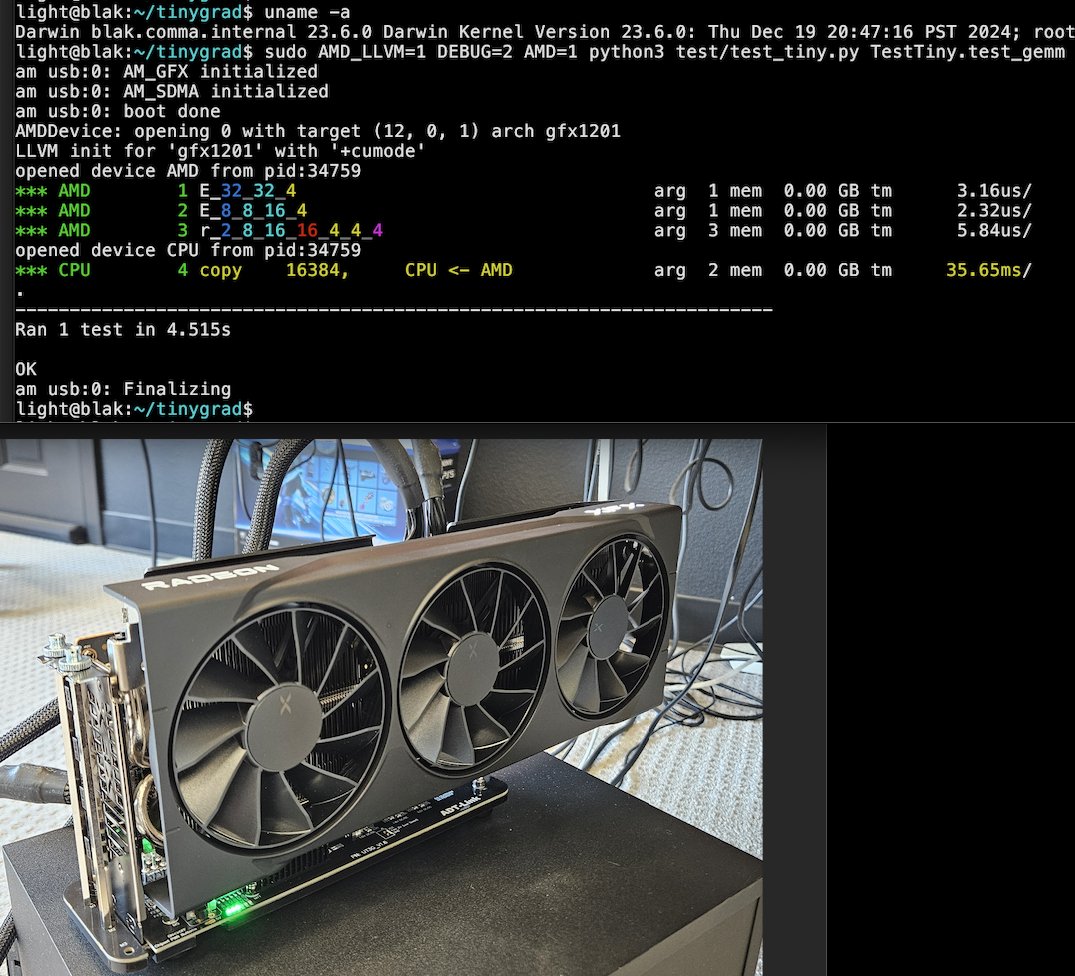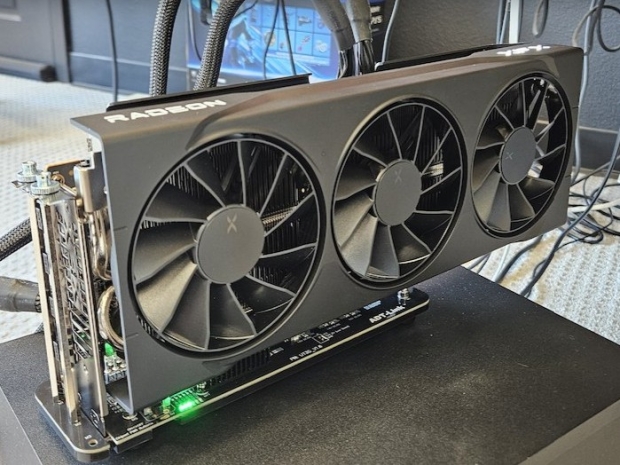Normally, GPUs need a PCIe slot or a Thunderbolt/USB4 port to function, but this engineering oddity uses USB3 which is not exactly known for its GPU-friendliness. By bodging together custom userspace GPU drivers and probably tweaking adapter firmware, Tiny made it possible to run external graphics on Windows, Linux, and macOS.

Traditionally, eGPUs depend on PCIe tunnelling through Thunderbolt, making them a no-go for Apple Silicon users who’ve been left out in the cold with no proper external GPU support. While Apple's M-series chips are efficient at sipping power and running mobile apps, they fall flat for AI developers needing serious GPU grunt.
Tiny Corp’s workaround involves an ASM2464PD-based adapter like the ADT-UT3G. Normally, that adapter talks nicely with Thunderbolt, but the team somehow forced it into USB3 mode. Official details are murky, but it looks like the adapter is converting PCIe commands into USB packets on the fly.
Performance is throttled by the 10Gbps limit of USB3, meaning model loading and data transfer are slower than proper PCIe setups. It also requires RDNA 3 or RDNA 4 AMD GPUs but it is rumoured to support RDNA 2 eventually.
The "hack" skips kernel-level GPU drivers by using custom user-space libraries, so you won’t be needing to dive into the guts of your OS to try it out. Tiny USB3 eGPU support has already been baked into Tiny Grad’s master branch.
Developers promise a more technical breakdown soon, once they’ve "tidied up" the code and finished duct-taping it together.

